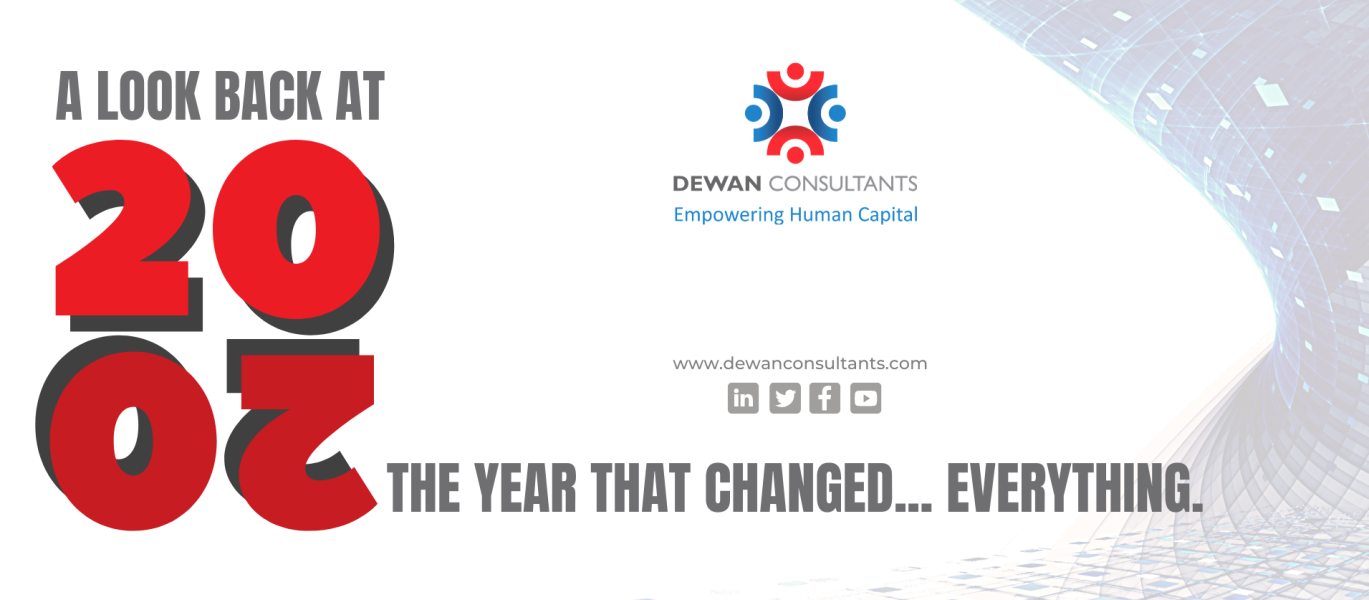 February 15, 2021
February 15, 2021

There is no denying that COVID-19 has reshaped the way we live and work.
Many organisations might be rearranging initiatives, with much uncertainty over which particular avenues of/or digitisation and digitalisation, should they be focussing on. Meanwhile, analysts are struggling to keep pace with the pandemic’s impact on economies, sectors and firms.
The one thing that has emerged pristinely evident is that the pandemic is acting as a catalyst to global digitalisation. From virtual meetings to automated factories, online orders to drone deliveries, digital services are all growing in importance and are infiltrating an increasing number of sectors and activities.
Digitally agile firms are adapting to the ongoing crisis more successfully, while the traditional brick-and-mortar businesses are rapidly upskilling and reinvesting as a response to the challenges to their business models.
The power of investing in the digital economy.

There is significant evidence that foreign direct investment (FDI) can route technology, talent, jobs and growth to where we are on the map. FDI is also often the largest source of finance for emerging economies. At first blush, the concept of a digital firm might be intimidating to many, but in reality, at the core, like traditional firms, digital firms invest abroad to be close to customers, access local knowledge, open new markets and more.
Yet attracting FDI in the digital economy requires enabling policies and regulations, because digital firms have business models that vary from previous regional business set-ups. Digital firms rely heavily on data and technology, often involve platform economies and non-traditional leverage assets.
The digital economy has generated a host of new and innovative business models, from social media and the platform economy to cloud computing and data centres and more. Without the internet, such businesses would not have come into existence.
Beyond ‘fresh’ business models, the digital revolution has the potential to change traditional ways of conducting businesses. Local enterprises may adopt various digital services to reduce obstacles and long term costs, simplify supply chains, and provide speedy delivery of goods and services with a focus on innovation and added value. Enterprises which embrace such new models facilitate environments conducive to both individual firms thriving and micro-economies, by way of improved employee benefits.
As a case study, the United Arab Emirates saw its inflows of FDI increase by 32% between 2018 and 2019, reaching USD 13,8 billion. In the same period, the stock of FDI reached USD 154 billion. The political and economic stability of the country attracts new investors fleeing from less stable countries in the region.
The United Arab Emirates was the largest FDI recipient in the subregion of West Asia in 2019, thanks to major investment deals in oil and gas sectors. The bulk of FDI is concentrated in the sectors of trade, real estate, finance and insurance, manufacture and construction. The leading investors are the United Kingdom, India, the United States, France and Saudi Arabia.
The strengths of the UAE include its easy access to oil resources, low energy costs, a willingness to diversify the economy and a high purchasing power. With a minimum VAT levied only recently, exchange controls and of any limitations on the repatriation of capital, as well as the existence of a strong and profitable banking sector, plus a large pool of expatriate labour are the country’s undeniable assets. Moreover, in July 2019 a decision of the Federal cabinet allowed up to 100% foreign ownership for 122 economic activities across 13 industry sectors, including manufacturing; agriculture; construction; space; renewable energy; hospitality and food services; healthcare; transport and storage; ICT; professional, scientific and technical activities; administrative and support services; educational activities; art and entertainment.
A new foreign investment law has also been approved recently (Federal Decree-Law No. 19 of 2018), with the establishment of an FDI unit within the Ministry of Economy, with the mandate to propose and implement FDI policies.
All evidence points to robust underlying digital infrastructure as paramount for the development and growth of the economy, both digital and otherwise. Attracting investment in digital infrastructure requires a conducive regulatory framework, for instance, policies and measures that encourage investment in payment processors. Success in attracting foreign investment in digital infrastructure can significantly benefit local companies, mostly small and medium enterprises.
In Dubai, digital and software are seen as the key industries that have the potential to attract foreign direct investments (FDIs) in the UAE, according to an expert. Also, SMEs, education, healthcare and hi-tech are other industries that will boost the growth of FDIs. These sectors, along with other priority sectors, are forecasted to witness a 15-20 per cent increase in the flow of FDI between the end of this year and 2020.
Here are the considerations that most investors are faced with while contemplating investments:
- Do data localisation requirements impact investment in digital firms and activities?
- Data localisation provisions mandate firms to store and process data locally through data centres. While this requires establishing a physical presence in a country to a certain degree, whether this serves as an impediment for digital FDI remains largely unexplored.
- Do taxes on digital goods and services impact digital adoption in traditionally non-digital sectors?
In recent years, several countries have either imposed or are contemplating imposing taxes on mobile and internet usage, electronic goods, digital services such as e-books, and online streaming. However, aside from issues to do with the cost of collection, it is unclear to what degree such taxes affect digital adoption.
A precursor to achieving such investment are policies and measures, including telemedicine, mobile banking and online sales, that encourage adoption of digital features to conduct business. Technical standards for telecommunications, data, electronics and other infrastructure in the digital economy facilitate harmonisation. Several international, regional, sectorial and professional organisations are active in standard-setting.
With these advancements, enabling the growth of digital goods and services through attracting inward investment, while simultaneously facilitating the outward investment of firms into digital goods and services in other markets can play a vital role in the world’s recovery from the current crisis.
About Dewan Consultants
Since inception, our unique blend of understating needs, talent management and commercial understanding, offers a complete people management and hiring service. We provide flexibility and access to top-calibre professional HR Advice. Over the years, we have been by recruiting the best talent from countries across the globe.
India, Pakistan, Nepal, Burma, Bangladesh, Sri Lanka, Philippines, Indonesia, Vietnam, Thailand, China, Jordan, Syria, Lebanon, Egypt, Tunisia, Morocco, Kenya, South Africa, Lithuania, Romania, United Kingdom to name a few.
From sourcing to screening to interviewing and immigration, we have perfected the art of getting the right talent to the destination country seamlessly. Presently, we are one of the world’s foremost Indian human resource providers. With our in-depth knowledge, insights and expertise in the talent business, we are on a path of becoming a name to reckon with.










